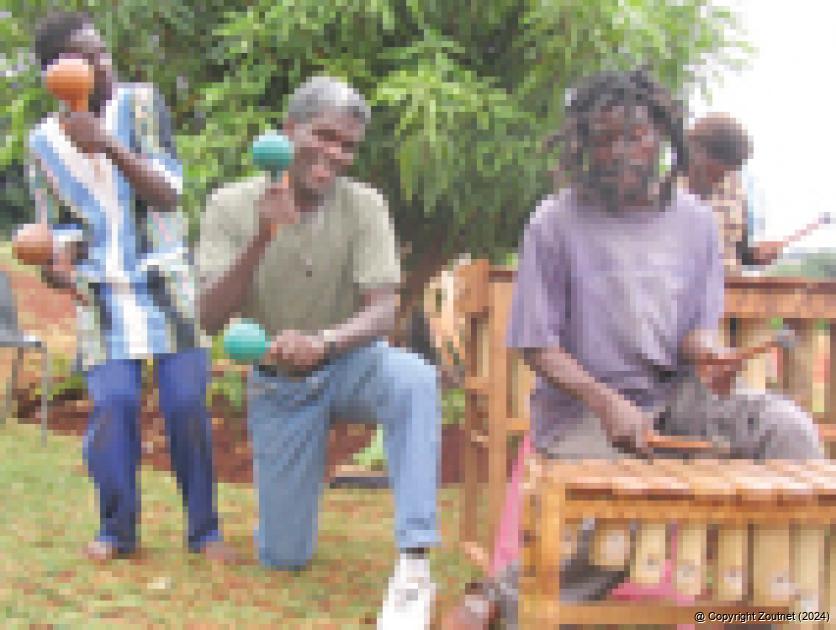
Playing hosho, from left, are Maanda Netsianda, Nii Armah Sowah from Ghana and Rofhiwa Sumbana playing marimba.
News - Date: 01 July 2005
SHIRLEY – A Ghanaian, Nii Armah Sowah from the University of Colorado at Boulder in the US, has shared and exchanged his African cultural information through music with various local cultural groups within the Makhado and Thulamela Municipalities.
With Tinkawu Theatre Laboratory as his host, Sowah managed to share and exchange his Ghanaian cultural music with the Caravan dance group from Ribungwane, Tinhlolo from Bungeni, Vhembe Cultural Ensemble from Tshitotsheni at Ngovhela as well other cultural groups from Tshakhuma, Ha-Muila and Mdavula settlements.
Asked about his mission in this country, Sowah said that “this is part of my personal trips to African countries under my designed project African Music Cultural Exchange with the goal of getting Africans to unite share and exchange cultural information through music. I realised that, as Africans, we do not know each other’s culture better though we share the same history. I regard myself as a cultural ambassador with a huge challenge of disseminating information about African cultures to different people around the world as another way of displaying a true reflection about this continent and its people,” he said.
Asked what he had learnt within the local cultural groups, he said that “I was so impressed to see different tribes (Shangaans and Vhavenda) strongly and actively practising theatre and cultural dance together, irrespective of their lack of necessary resources. They do it in style, focusing on relevant current issues in society as well as dealing with the developmental programmes, including their awareness about the HI virus, through their songs and theatre.”
Sowah made a challenge that other Africans need to join him in finding ways of re-educating people about the importance of the continent’s culture. He added that his theoretical understanding of the Vhavenda and Shangaans cultural music was changed and enhanced by visiting the groups. “As we try to unite as Africans, it remains crucial for us to have interaction at grassroots level, so that the average individuals know something about their surrounding countries. When we know each other, it will always be difficult for someone to destroy us. We must be proud of our different cultures as we also share similar stories. The respect and kindness that I have seen from the people in this country would definitely make me come again,” he said.








